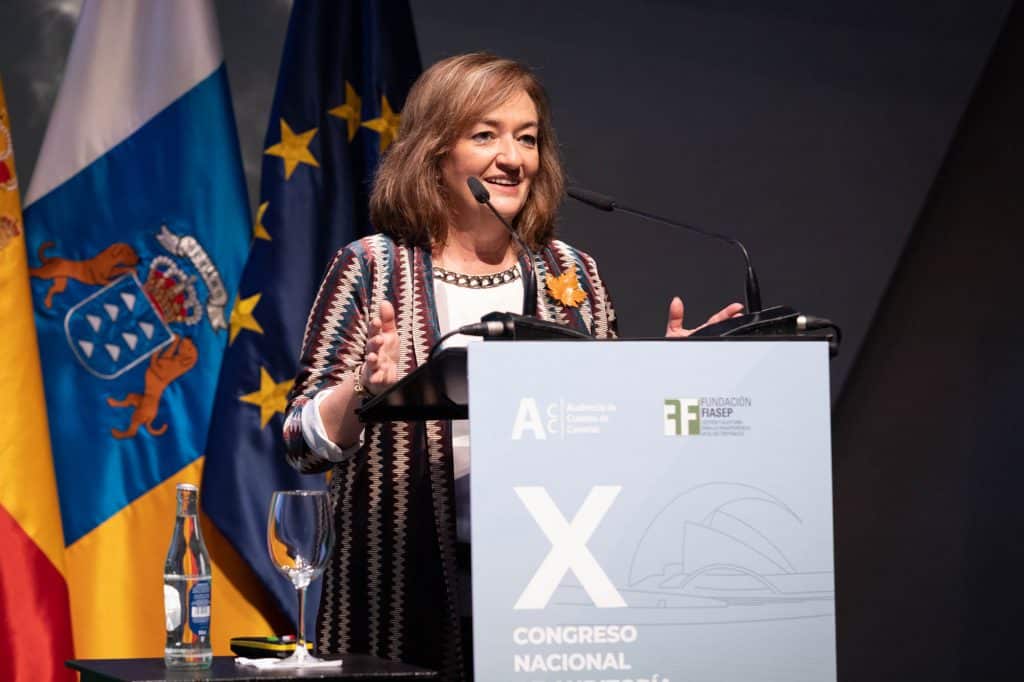The President of the Independent Authority for Fiscal Responsibility (AIReF), Cristina Herrero, participated today in the 10th National Congress on Auditing in the Public Sector organised by the FIASEP Foundation. During her speech, she reviewed the role played by fiscal institutions such as AIReF, which have the core mandate of ensuring the sustainability of public finances.
As Cristina Herrero highlighted, AIReF was established in 2013 after the economic and financial crisis as a new institution in Spain due to its mandate and unique institutional features. A strong institution was selected in order to comply with EU requirements and in view of the special situation of Spanish finances resulting from the crisis.
AIReF ensures fiscal sustainability through the exercise of two functions with clear synergies: fiscal monitoring and evaluation. It does so by issuing reports, opinions and studies. It also produces specific products on sustainability. AIReF performs these functions in a different way to other bodies operating in the field of public finances.
In its short-term analyses, AIReF assesses ex ante compliance with fiscal targets – guidelines in the current context of suspended fiscal rules – without losing sight of the medium term. In fact, last October, AIReF published, for the first time, its medium-term scenarios in the Report on the Draft 2023 Budget. Until now, these were only published in the Report on the Stability Programme Update.
AIReF has been warning of the risks to the sustainability of public finances as a result of the high level of accumulated debt, which seems to be stagnating at levels above 100% of GDP, leaving it vulnerable to external shocks such as interest rate rises. In this context, AIReF has recommended that a medium-term fiscal strategy be defined to guarantee the sustainability of public finances.
In the long term, AIReF initially focused on the sustainability of the Social Security system, but at the end of this year it will publish an opinion on long-term sustainability that will go further, with a comprehensive analysis including demographic, macroeconomic and fiscal projections that provide an analysis of the sustainability of the finances of the General Government as a whole in the very long term.
Evaluation
As Cristina Herrero highlighted, the future reform of the fiscal framework is committed to a more qualitative framework, with quality as the cornerstone of sustainability. In this regard, AIReF has consolidated its role as an evaluator of the efficiency, effectiveness and equity of public policies with commissions from both the Central Government and the Autonomous Regions. AIReF’s President reviewed one of the institution’s latest assessments, that of the Minimum Living Income (MLI), published in July 2022.
The Director of AIReF’s Public Spending Evaluation Division, José María Casado, also participated in the Congress. He stressed that the evaluations performed by AIReF aim to provide evidence for the improvement of the quality of public policies. He also noted that they have already driven some reforms, in such essential areas as healthcare, taxation, employment, education, infrastructure, industry and social policies.







